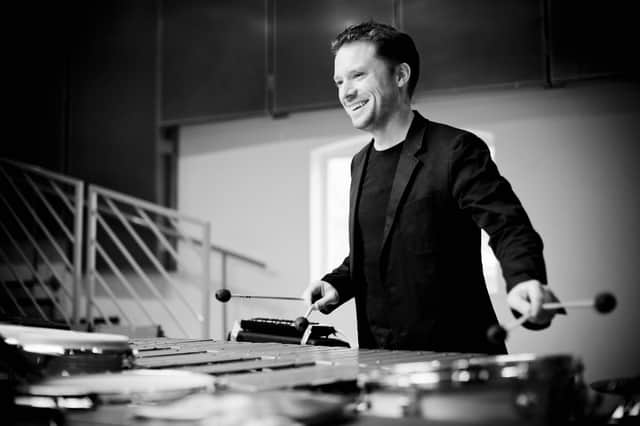Music review: SCO, Clemens Schuldt & Colin Currie, Queen's Hall, Edinburgh


SCO, Clemens Schuldt and Colin Currie, Queen’s Hall, Edinburgh *****
“Wall of sound” is hardly a term you’d usually associate with the buoyant, translucent playing of a 40-piece chamber orchestra. But it perfectly captures what visiting German conductor Clemens Schuldt achieved in his big, powerful, forcefully projected performances with the Scottish Chamber Orchestra. He made for a fascinating figure on the podium, dancing and swaying along to the music, at times simply letting the SCO players get on with it with just a few tiny, cursory gestures, only to explode into action at key moments.
Advertisement
Hide AdAdvertisement
Hide AdAnd his results – certainly in the closing Beethoven Symphony No. 4 – were quite simply thrilling. It’s something of a Cinderella, overshadowed by the more extrovert, heroic Third and Fifth either side of it. But Schuldt made a compelling case for the Symphony’s terse arguments and gruff humour in a dense, energetic account, especially hefty in a sonorous scherzo, but one that was also nimble on its feet and beautifully shaped.
That sense of sonic density was already there in the multi-layered, seething and teeming textures of Helen Grime’s earlier Percussion Concerto, getting its Scottish premiere from Edinburgh-born percussionist Colin Currie. It was Currie who gave the premiere just three years ago, but the piece is clearly deep in his blood: he delivered Grime’s cascading flurries of vibraphone and crotales, and the gentle throbs of her drum writing, with exquisite subtlety and utter conviction. Similarly, Schuldt drew a wonderfully precise, elegant account from the SCO players, teasing apart Grime’s coruscating textures while retaining their power, with a firm grip of the piece’s somewhat elusive architecture. It was the kind of music where you’d peer deep into the orchestra, wondering where that sound was coming from – and Currie and the SCO conveyed that magic brilliantly.
Two desert island overtures – one from Haydn, and a compelling, noisy discovery from lesser-known Anton Eberl – completed a captivating, revelatory, thunderous evening.
A message from the Editor:
Thank you for reading this article. We're more reliant on your support than ever as the shift in consumer habits brought about by coronavirus impacts our advertisers.
If you haven't already, please consider supporting our trusted, fact-checked journalism by taking out a digital subscription at https://www.scotsman.com/subscriptions